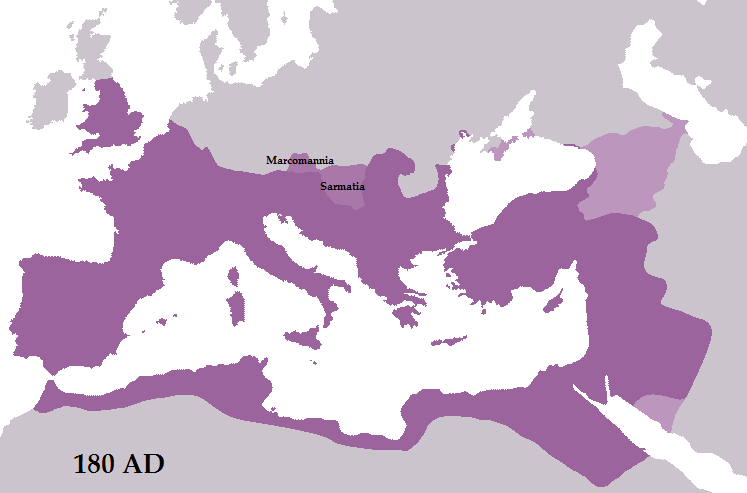No Muslim would be surprised at the content of Meditations.
The interesting part though is its function.
When you hear Meditations, you would expect some thought development throughout the book.
You’ll find none of that. The title is a misnomer.
I would rather call the book Workout for the Soul.
Not an appealing name, but it captures well the purpose—to strengthen the soul against the challenges of everyday life.
Meditations are even more interesting for two other reasons.
Firstly, it was never meant to be published.
Marcus Aurelius wrote it to himself.
Reading Meditations is like sneaking into someone’s bedroom to read their personal journal!
The thoughts are not polished to satisfy an audience.
Secondly, it was written by an emperor.
But unlike many Roman emperors, Marcus Aurelius didn’t live a scandalous life.
Yet, at that level, one must deal with serious temptations.
As Lord Acton wrote:
” Power corrupts. Absolute power corrupts absolutely.”
During his 19 years of reign, life threw many challenges at Marcus Aurelius to turn his world upside down—wars, plague, sickness, voracious people, loss of children…
But despite all that, he sounds unaffected.
His inner fortress is solid. And Meditations gives us an idea of how it was built.
A Philosophy for Serious-Minded People

At the time of Marcus Aurelius, Islam, as we know it today, didn’t exist.
Christianity was still a sect.
The Roman Empire was a mix of religions, belief systems, and philosophies.
Different from today, philosophy wasn’t something abstract but practical. A way of life.
Marcus Aurelius was a Stoic focused on ethics.
Had he wanted to, he could live the Epicurean life— chasing available pleasures and shielding himself from pains and anxieties.
Some critics say there is no place for joy in Meditations.
I believe his pleasure was in keeping his mind clear, walking through the pains and anxieties, and carrying the crushing responsibilities to their accomplishment.
Indulging in vulgar enjoyment would damage his character. And that’s something he feared.
Stoics fear nothing more than losing control of their soul and becoming a slave of their changing emotions.
They want to remain steadfast and act morally in all circumstances.
To walk his demanding path, Marcus Aurelius found help in writing.
In fact, the first thing that will strike you when reading Meditations is repetition.
The same themes keep coming back, over and over again, in an obsessive attempt to sync beliefs with actions.
The Three Pillars of Meditations

The repetition is axed around three pillars:
1- Our perception of life events.
2- The things in our control.
3- The things outside our control.
Marcus Aurelius makes a clear distinction between life events and our perception of them.
For him, what is harmful is not the event but our interpretation of them.
Pain is not unbearable but our imagination can make it so.
He repeatedly reminds himself to see things as they are.
Things in our control are related to our actions.
For Marcus Aurelius, our actions need to be aligned with what nature requires.
Nature requires not to harm one’s character, to treat people as they deserve, and to work with others just like the two rows of teeth.
Things outside our control are coming either from people or nature.
If they don’t corrupt your character, people can only harm themselves.
For the things coming from nature, Marcus Aurelius sees them as specifically designed for us—as if someone weighted them with scales!
We must accept them, just as we would accept the doctor’s medicines, even if sometimes, they are unpleasant.
By eliminating the negatives of an inaccurate perception and anything outside of his control, Marcus Aurelius can focus on less, and thus, act better.
Living According to Nature

Our soul is colored by what preoccupies our mind.
And Marcus’ mind is preoccupied with one thing—“to live as nature requires.”
Nature, Providence, or God are used interchangeably in Meditations.
Logos can also refer to something similar—it’s both the faculty of reason and the rational force that governs the universe.
So living according to nature is the same as being rational, being good, or being free.
No rational beings would like to harm themselves or others, disgrace themselves, or live a life they were not created for.
Marcus Aurelius doesn’t have a childish definition of freedom—to live as passions and emotions dictate.
He wrote:
“The freedom to do only what God wants, and accept whatever God sends us.”
In some way, ‘to act as nature demands’ is close to the Islamic concept of fitrah—the original disposition in which God created all individuals.
Freedom becomes a way to preserve our innate state and accomplish our duties in the best manner possible.
Knowing that, Marcus Aurelius strives to protect his inner fortress:
“…keep the spirit inside you undamaged, as if you might have to give it back at any moment.”
Final thoughts on Meditations

Meditations have a scent of death on every page.
Marcus Aurelius understood that humans are forgetful beings.
So he keeps reminding himself of the same few ideas.
The wording is different but the goal is the same—bridging the gap between what he knows and how he acts.
And that’s what wisdom is about—beneficial knowledge that is acted upon.
Marcus Aurelius was aware that the world is change.
Aren’t we, and everything around us, born from change?
By way of reminders, he learned to be at ease with the ever-changing world.
He kept planting seeds in his soul so as to bear fruits with each season.
This is how he kept his inner fortress strong.
Similarly, Muslims can’t uprightly survive this world without the constant reminder of a few truths.
A Muslim is like a leaf. Disconnected from the blessed tree, they lose nutrients and die.
How do we act in good and hard times?
Do we rebel against our destiny?
What do we think of Allah?
Do we see difficult times as an opportunity to strengthen virtues we didn’t exercise enough?
Do we remember the forgotten sunnah of the Prophet (pbuh) when dealing with people?
Are we a cistern that hold grudge against others for eternity or a flowing stream that perpetually cleans itself?
Without reminders, it’s easy to drift away.
But with a solid fortress, we can walk this turbulent world with inner tranquility.
Some of My Favorite Quotes from Meditations

“You could be good today. But instead, you choose tomorrow.”
“Stop talking about what the good man is like and just be one.”
“That everything has to submit. But only rational beings can do so voluntarily.”
“It never ceases to amaze me: we all love ourselves more than other people, but care more about their opinion than our own.”
“It’s time you realize that you have something in you more powerful and miraculous than the things that affect you and make dance like a puppet.”
“People who labor all their lives but have no purpose to direct every thought and impulse toward are wasting their time—even when hard at work.”
“Nowhere you can go is more peaceful—more free of interruptions—than your own soul.”
“It can ruin your life only if it ruins your character. Otherwise, it cannot harm you—inside or out.”
“External things are not the problem. It’s your assessment of them.”
“People exist for one another. You can teach them or endure them.”
Article published: February 12, 2023
Popular Articles
- 7 Lessons from Luqman that Will Make You Wise
- Are Muslims Meant to Be Sleep Deprived?
- How to Enjoy Salat and Make it Meaningful
- Mongols Invasions: Some Forgotten Lessons to Today’s Muslims
- Islamic Psychology: A Model Where Faith Has Its Place
- Muslims Judging Each Other: Why and How to Be Less Judgy
- 3 Tips to Unlock the Believer Mindset
- How to Honor the Prophet
- Healing with the Medicine of the Prophet
- How to Make People Change their Mind: Persuasion!
- The Value of Time
- Islamic Medicine from a Sufi Perspective (Part 1)
- The Certainties of Muslims in an Uncertain World
- Allah According to Allah: The Beauty Behind the Verse of Light
- 5 Powerful Duas from the Quran to Help You in Both Worlds
